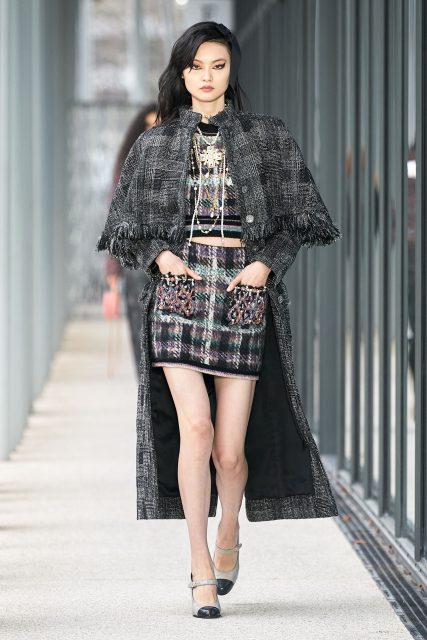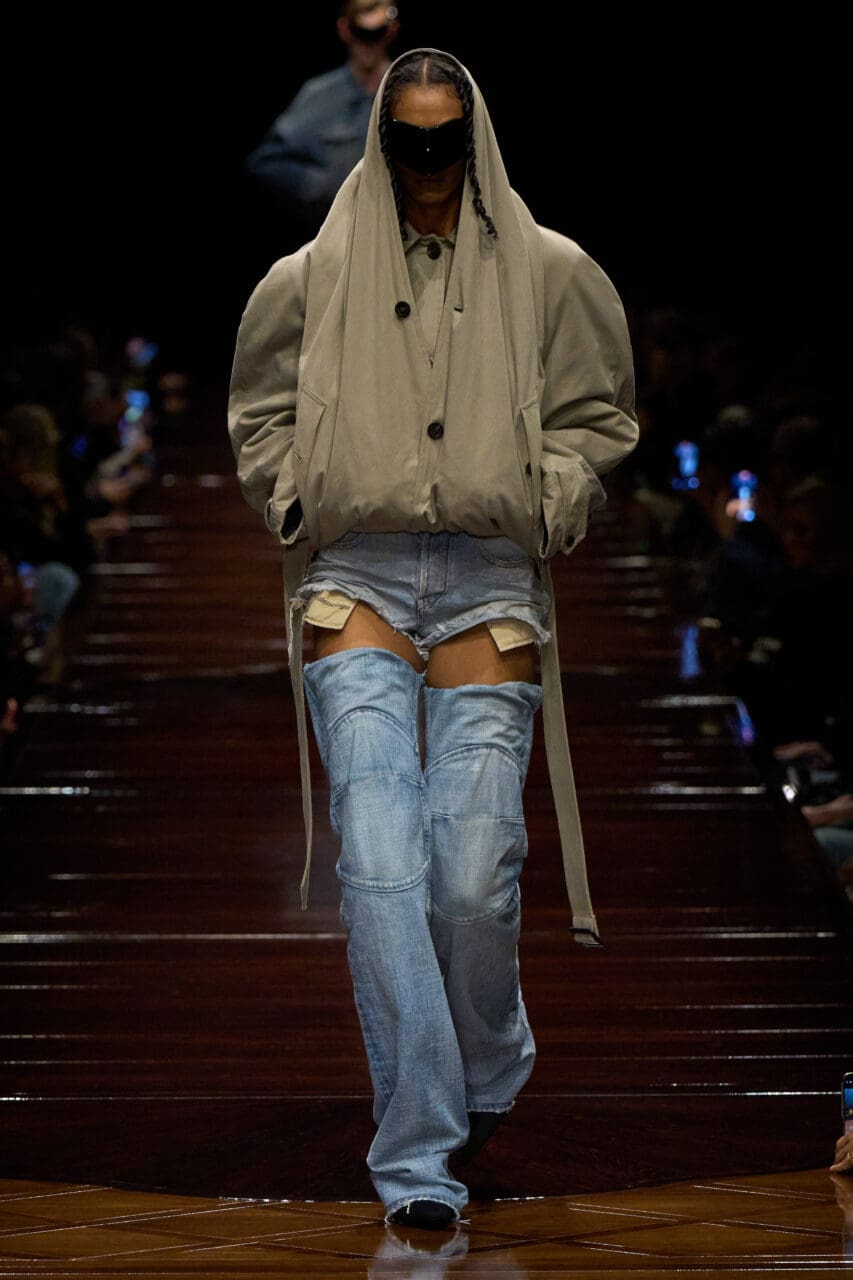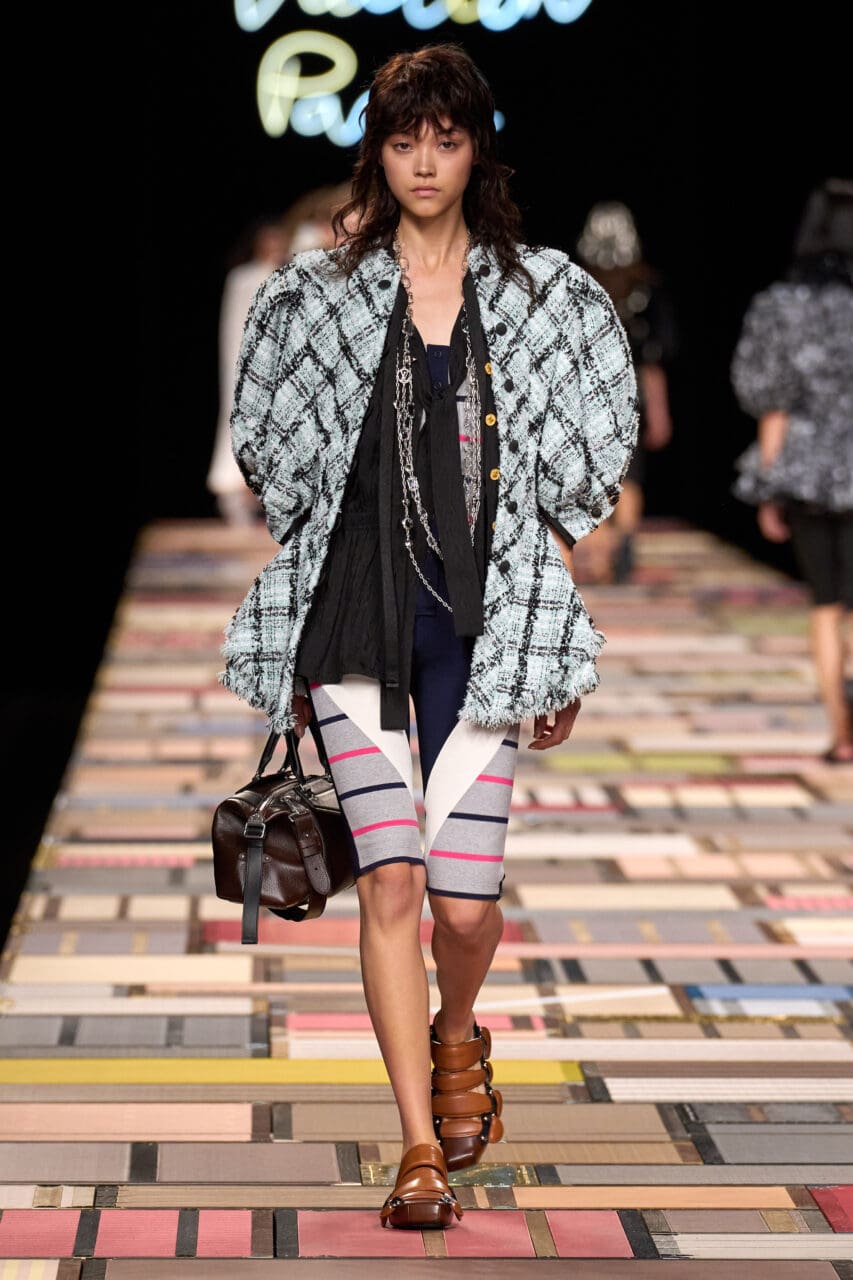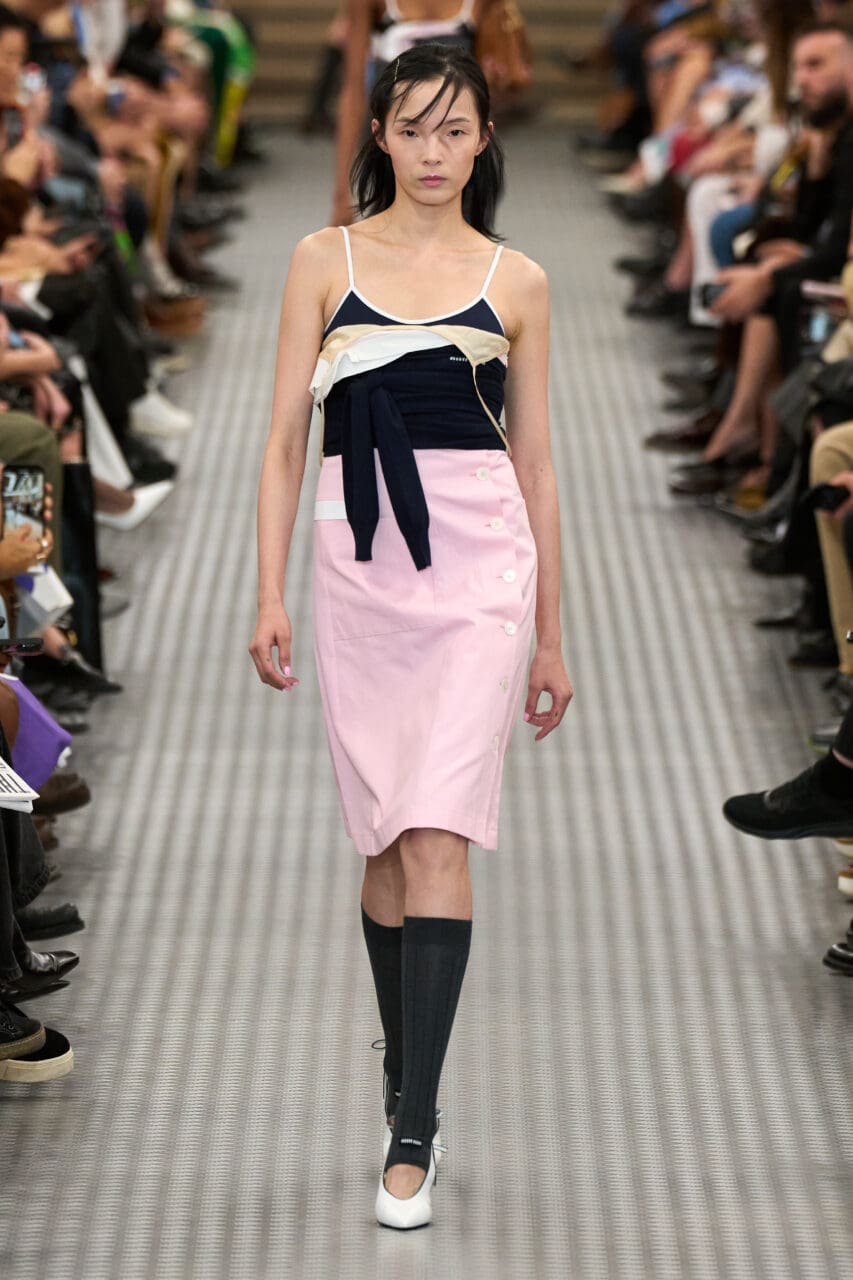There was an analogue mood about Balenciaga’s pre/fall 2022 show. From the video tape invitations to the lo-fi polaroids that comprised the lookbook, creative director Demna – who revealed he will no longer use his surname in a professional setting, going forward – transported viewers back to the ’90s. Here, British Vogue’s fashion critic Anders Christian Madsen brings you five key takeaways from the presentation.
The digital show referenced 1990s runway footage
Fashion nerds who spend their evenings scouring YouTube for old runway films will know this season’s Balenciaga reference well: gritty, dusty footage from some warehouse 1990s fashion show that became the stuff of legend, complete with arrivals and post-show commentary from industry icons. The Lost Tape, as Demna titled his digital show (and it is just “Demna” now, but more on that later), was his ode to the era that shaped his aesthetic, but also to his anti-fashion approach to the industry.
It reflected on the origins of the way we dress today
Don’t call it nostalgia. “I don’t like to look back to the past, I find this useless,” Demna wrote in an email after the film went live. “The Lost Tape is more of a poetic artefact that highlights the importance of emotion in fashion: this raw, unpolished, smudged and somewhat nasty aesthetic of ’90s fashion; the era that really pre-defined not only my sense of style, but also most of what we see people wear today. This was my very ‘analog’ effort to fill up a historical gap in Balenciaga’s fashion history.”
It was decidedly Belgian
Demna has never made a secret of the fact that the subversive meta universe that defines his work – and not least this collection, which his show notes wittily dubbed “avant-goth” – is founded in the philosophies of the Belgian designers he grew up loving. This includes Martin Margiela whose house Demna worked for after the designer sold it, but whose anti-fashion principles can seem far-removed from the mainstream, household stature of Balenciaga today. “Haha, I have really never felt like a mainstream household fixture,” Demna said.











